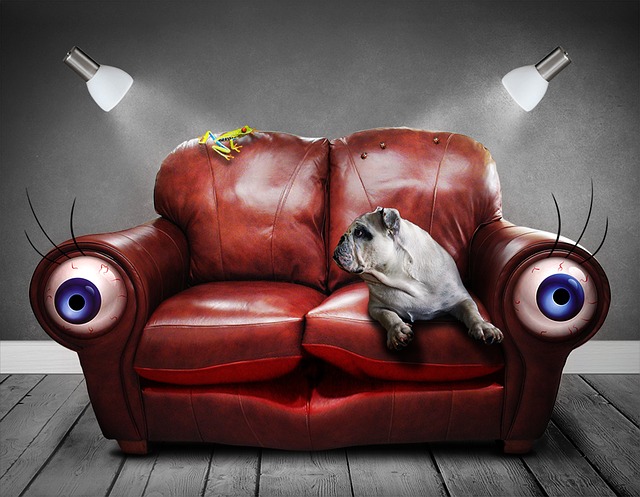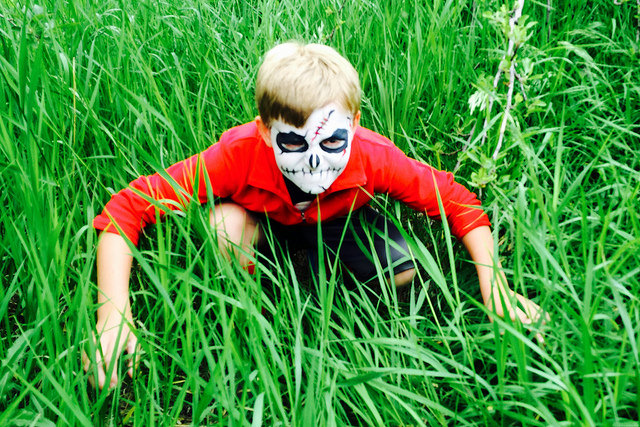
I am not against labeling. I use labeling a lot in my work, especially with kids, because it saves a lot of time explaining the range of each label. Instead of saying, “On a scale of 1 to 100 of being scared, you scored 30”, I say, “You are very cautious and that should be really appreciated”.
Over the last 25 years of work with children, I have heard hundreds of parents complain about their kids’ stubbornness, which I was happy to label as being persistent. You see, Thomas Edison was one of the most stubborn people I have learned about (I wish I could write, “met”, because I could probably learn some good lessons in stubbornness from him). It kills me every time to think what would have become of us if Edison’s mom nagged him all his life for being stubborn.
This ability to rename negative labels put on kids has brought me lots of joy and success in my career. I have worked with kids who had been diagnosed with ADD, ADHD, mental health issues and others who had been labeled “dumb” and even “slightly retarded”. By just “sticking” a different label on them, I have helped them and their parents bring out their amazing, wonderful talents and abilities. It was no longer a problem but a talent. It was no longer some weird behavior but creativity. It was no longer something to be ashamed of but a source of pride, no longer stupidity but a unique form of thinking.
I think the problem that parents have is not understanding how labels become self-fulfilling prophecies. Kids who are labeled “Smart Alecks” because they ask many question grow up to ask questions that annoy everyone around them, but if they are considered curious when they ask questions, they grow up to ask questions that earn other people’s respect. It is as simple as that – labels are everywhere and your life depends on which one you choose.

When kids are given labels, they do not question them. When my son was 13, he entered a composition competition. The teacher suggested to the students to enter their finished music assignments into the competition and he was the only one from his school who did. This piece was his second composition ever. What do you know? He won third price in a young composition competition. The professor from the music conservatorium who chose the winning pieces and explained his choices, gave him many great labels that easily convinced our son he was a composition genius. From that moment on, our house has been full of new tunes and orchestral music. At the age of 15, he is finishing Grade 12 confident he is going to be a composer.
Of course, it works the same with negative labels. When kids are given negative labels, they do not know that for every negative one there is a positive counter label. They cannot tell you, “I’m not lazy, I just think carefully about my answers and take my time”, “I’m not a procrastinator, I’m very particular and would rather think things through before I do things”, “I’m not selfish, I follow the rules of the jungle” or “There’s no problem with my choice of clothes, I’m simply creative”.
You see, in order to say something like this, you need confidence, confidence, confidence and a high level of thinking, which requires years of experience. At a young age, kids have plenty of time ahead of them, but not many years of experience. So I never blame kids for being unable to see the good label sticking out from the damaging label, because most of the grownups I work with do not know how to do it either. That is because when they were growing up, no one taught them to question the labels they were given.
No Name Calling
I have been protesting against negative labeling for a long time. In the last 5 years, I have been teaching tolerance at schools and have realized that we have lots of programs for kids to teach them not to use “name calling”, but we have not extended them to grownups, although they are in this cycle too.

Some people do “name calling” as a profession.
I mean it.
I am one of them.
Special education professional always use diagnosis to start from somewhere. Doctors, psychiatrists, psychologists, counselors, life coaches and other human problem solving professionals must use “name calling” to start from somewhere. The problem is that we become attached to our diagnosis and start living by it. Instead of giving a service, we create a need that never existed before.
One problem that is very close to my heart is the overuse of drugs for kids after taking normal childish behavior and turning it with a simple label into a disease.
Leon is my recent example of it. He was a 6-year-old Prep (the year before Grade 1) student who lived in a very problematic family dynamic. I worked with him for less than two months, but in that short period, he did a lot. He was active, moved a lot and was very communicative. I failed to convince his mom that Leon was a bright and active boy who needed a different style of teaching. His parents ached for a fast solution and used Ritalin after spending a fortune on diagnosis, observation and meeting with a psychologist. Two months after taking Ritalin, Leon was diagnosed with schizophrenia.
Oops.
Had the psychologist missed the schizophrenia in all her many observations and diagnosis…
Or
Maybe he never had it?
For the psychologist who said ADHD and the psychiatrist who said Schizophrenia, these were just labels. For Leon’s family, life is now a living Hell.
Recently, I watched a video done by the Citizens Commission on Human Rights. I would like to support their cause by encouraging all the parents in the world to watch it and I know you will enjoy.
Happy parenting,
Ronit











